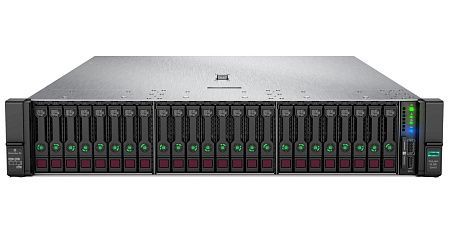- Server on AMD platforms
- AMD Platform
- AMD Processor Architecture
- AMD Server Performance
- Stability and Reliability of AMD Servers
- Advantages of servers on AMD platforms
- Disadvantages of servers on AMD platforms
- Availability limitation
- Single-threaded performance
- Optimization of third-party software
- Conclusion
Server on AMD platforms
Server technology has evolved rapidly over the years to meet the ever-increasing needs of individual users and organizations of various sizes today. Choosing a platform is one of the most important aspects of server technology. In this article, we will consider the advantages and disadvantages of using the AMD platform for servers. In this article we will consider the reliability, efficiency and architectural features of servers built on AMD platforms, as well as the advantages and disadvantages of using the AMD platform for servers.
AMD Platform
AMD (Advanced Micro Devices) is a popular company that specializes in the production of semiconductors. AMD has been occupying one of the most important positions in the computer industry for several decades. Their innovative processors are in high demand both among individual users and large corporations. Since AMD provides efficient and cost-effective solutions for building servers, they have become widespread in the server market.
AMD Processor Architecture
AMD processors are characterized by an excellent architecture that is capable of providing a high level of performance. High compatibility with a significant number of software applications is achieved through the use of the popular x86 instruction set architecture by MD. This compatibility makes it possible to easily integrate servers based on AMD platforms into an existing IT infrastructure.
AMD Server Performance
When it comes to multithreading and parallel processing, AMD's latest generation processors (for example, the EPIC series) provide a wide range of impressive performance capabilities. AMD servers are a great option for demanding business environments, as they can efficiently handle large workloads and support a number of users at the same time.
Stability and Reliability of AMD Servers
Since the continuous operation of the server is the key to the effectiveness of any business, it is very important to take into account the reliability factor when choosing a server model. MD servers have long been known for their stability and reliability, as they are capable of offering excellent uptime while reducing downtime. The reliability of AMD processors guarantees a lower probability of errors and failures, as well as leads to reduced maintenance costs. This, in turn, provides improved business performance.
Advantages of servers on AMD platforms
Next, we will consider the main advantages of using servers based on AMD platforms.
Energy efficiency
MD processors are designed in order to optimize energy consumption, which allows to reduce energy costs and have a positive impact on business development. Due to this advantage, there is a positive impact on the environment as well, as carbon dioxide emissions are reduced.
Scalability
If we are talking about server infrastructure, then scalability will also be the most important factor here. MD servers have excellent scalability capabilities, which allows companies to easily increase server capacity as needs grow. This advantage provides organizations with the opportunity to adapt to external changes without purchasing additional equipment.
Economic efficiency
Servers tend to be quite expensive, so cost-effectiveness is a key factor for many companies. MD servers are a great option in this case. Servers based on the AMD platform are provided at affordable prices, and at the same time with a high level of performance, which makes them an excellent solution for organizations of any size.
Security features
In the modern world of technology, one of the most important requirements is the security of work processes. MD servers include a wide range of advanced security features that are responsible for protecting the server from cyberattacks. Among these features, the following should be noted:
- virtualization capabilities,
- secure boot,
- secure memory encryption.
Disadvantages of servers on AMD platforms
In addition to quite impressive advantages, AMD-based servers still have certain disadvantages.
Availability limitation
Relative to competitors, the availability of servers on the AMD platform may be limited. The main reason is that many organizations and IT specialists tend to choose more common brands. However, it is worth noting that over the years AMD-based servers have been gaining more and more popularity in the server market, which means that availability indicators are increasing. Today, many vendors offer these server solutions.
Single-threaded performance
When it comes to single-threaded performance, AMD servers offer less capabilities compared to their competitors. This may limit the functionality of some applications that rely mainly on single-threaded operations. Nevertheless, a number of significant improvements have been introduced in the latest AMD processor generations.
Optimization of third-party software
Despite the fact that AMD processors are well compatible with a large number of software applications, it is necessary to take into account the optimization of specific third-party software for AMD platforms. Different software applications can be optimized to varying degrees for competing platforms (which theoretically affects performance).
Conclusion
Thus, servers based on AMD platforms are an excellent option for companies that prioritize reliability, scalability and cost-effectiveness of server infrastructure. Due to the wide range of advantages of AMD servers, which include powerful architecture, high level of performance, as well as improved security features, they are becoming more and more popular in the server market every year. However, you should not forget about some limitations of AMD servers. Taking into account all the features of these servers, they are considered a competitive option in the modern hardware market.
Specialists of our company are ready to help you purchase the server and select the necessary server configuration for any required task.







